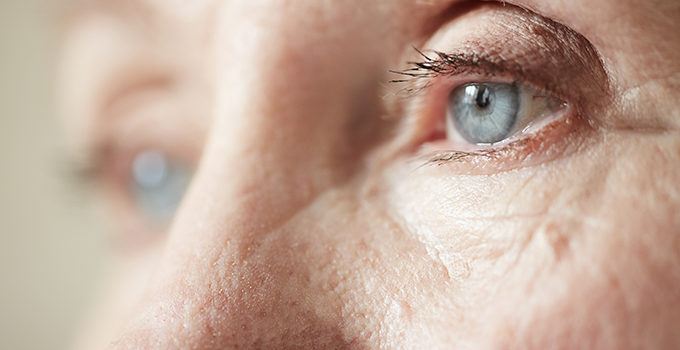

Dementia: A Recent Diagnosis?
by Zara Jethani
Finding a path of brain wellness for patients recently diagnosed with dementia.
Has a loved one recently been diagnosed with Alzheimer’s or dementia?
Receiving a diagnosis of Alzheimer’s disease, dementia, or mild cognitive impairment is challenging, both for the individual affected and their family members. Navigating the journey of these cognitive decline diseases alongside a loved one can be an emotionally taxing experience, marked by uncertainty and profound changes.
If a loved one has received a recent diagnosis (0-2 years), it’s natural to feel overwhelmed, but it’s important to remember that you are not alone in this journey. As a care partner, your role necessarily extends beyond providing physical assistance; it involves offering unwavering love, patience, and understanding. While prioritizing the needs of your loved one, it’s equally important to attend to your own well-being. Practicing self-care is essential to preventing burnout and maintaining your own mental and physical health. By finding a balance between caregiving responsibilities and self-care practices, you can better support your loved one with cognitive decline while nurturing your own resilience and strength.
What are the next steps after a dementia diagnosis?
As the journey unfolds, understanding the condition, knowing how to communicate effectively, and accessing resources and support become key aspects of caregiving. In this article, we explore a path of what brain wellness means for patients living with dementia, addressing common questions and providing guidance for care partners who are navigating this complex terrain. We also provide an overview of the Brain Wellness & Lifestyle program at Pacific Neuroscience Institute® (PNI®), where our expert team offers educational and informational techniques to help address issues that affect memory and cognition, including stress, nutrition, exercise, and sleep.
Care Partner Next Steps:
- Understanding the Condition:
- Alzheimer’s disease, dementia, and mild cognitive impairment (MCI) are common diagnoses of cognitive decline. While MCI involves noticeable cognitive decline without significant interference in daily activities, dementia is a more severe impairment affecting daily life. Alzheimer’s disease, the most common type of dementia, is characterized by memory loss, cognitive decline, and behavioral changes.
- Alzheimer’s disease, dementia, and mild cognitive impairment (MCI) are common diagnoses of cognitive decline. While MCI involves noticeable cognitive decline without significant interference in daily activities, dementia is a more severe impairment affecting daily life. Alzheimer’s disease, the most common type of dementia, is characterized by memory loss, cognitive decline, and behavioral changes.
- Recognizing Early Signs and Symptoms:
- Early signs may manifest as memory loss, confusion, difficulty in completing familiar tasks, and changes in mood or personality. Unfortunately, more than 20% of adults over the age of 55 experience depression, anxiety, or cognitive decline as they age. While denial is a common experience, it is important not to ignore symptoms. Getting an early diagnosis without delay or hesitation gives your loved one the best chances of staving off rapid decline. Finding good adult neurologists, adult/geriatric psychiatrists, clinical neuropsychologists, and community organizations helps support you and your loved one.
- Early signs may manifest as memory loss, confusion, difficulty in completing familiar tasks, and changes in mood or personality. Unfortunately, more than 20% of adults over the age of 55 experience depression, anxiety, or cognitive decline as they age. While denial is a common experience, it is important not to ignore symptoms. Getting an early diagnosis without delay or hesitation gives your loved one the best chances of staving off rapid decline. Finding good adult neurologists, adult/geriatric psychiatrists, clinical neuropsychologists, and community organizations helps support you and your loved one.
- Diagnosis and Treatment:
- Diagnosis involves a comprehensive assessment by medical professionals, including cognitive tests and brain imaging. While there is currently no cure, treatments focus on symptom management and improving quality of life. Early diagnosis and a proactive approach can go a long way in slowing down, stopping, or event reversing symptoms of cognitive decline with the implementation of brain wellness and lifestyle modifications.
- Diagnosis involves a comprehensive assessment by medical professionals, including cognitive tests and brain imaging. While there is currently no cure, treatments focus on symptom management and improving quality of life. Early diagnosis and a proactive approach can go a long way in slowing down, stopping, or event reversing symptoms of cognitive decline with the implementation of brain wellness and lifestyle modifications.
- Coping Strategies:
- Learning how to become an effective partner in care, and understanding the specific challenges and needs associated with cognitive decline are essential to taking on the care partner role. As disease progresses, effective communication involves using simple language, patience, and offering reassurance. Acknowledging your loved one and redirecting thoughts and conversations are useful tactics. Understanding triggers, maintaining a structured routine, and seeking professional advice can help manage challenging behaviors. In addition, seeking legal and financial advice is crucial after a diagnosis.
- Learning how to become an effective partner in care, and understanding the specific challenges and needs associated with cognitive decline are essential to taking on the care partner role. As disease progresses, effective communication involves using simple language, patience, and offering reassurance. Acknowledging your loved one and redirecting thoughts and conversations are useful tactics. Understanding triggers, maintaining a structured routine, and seeking professional advice can help manage challenging behaviors. In addition, seeking legal and financial advice is crucial after a diagnosis.
- Care Partner Well-being:
- Taking care of oneself is essential for care partners. This involves taking regular breaks, seeking support, and engaging in self-care activities. Investing in building a network of support, including joining support groups and accessing resources tailored for care partners provides a sense of community that helps dispel the feelings of isolation which can come with the caregiving experience.
- Taking care of oneself is essential for care partners. This involves taking regular breaks, seeking support, and engaging in self-care activities. Investing in building a network of support, including joining support groups and accessing resources tailored for care partners provides a sense of community that helps dispel the feelings of isolation which can come with the caregiving experience.
- Ensuring Safety at Home:
- Removing hazards, installing safety devices, and considering monitoring systems are essential steps to ensure the safety of the individual with dementia. A home environment assessment to help prevent falls is also useful.
- Removing hazards, installing safety devices, and considering monitoring systems are essential steps to ensure the safety of the individual with dementia. A home environment assessment to help prevent falls is also useful.
- Available Resources:
- Various brain health resources, including support groups and organizations like the Alzheimer’s Association, provide valuable information.
Brain Wellness & Lifestyle Program:
- Understanding the Program:
- The Brain Wellness & Lifestyle program offers personalized consultations and activities focusing on optimizing memory, nutrition, exercise, sleep, and stress reduction. In-person and virtual coaching options in individual and group settings are available.
- The Brain Wellness & Lifestyle program offers personalized consultations and activities focusing on optimizing memory, nutrition, exercise, sleep, and stress reduction. In-person and virtual coaching options in individual and group settings are available.
- Memory Training and Cognitive Function:
- Consistent memory training can improve short-term memory and aid in everyday memory struggles. During sessions, brain wellness experts guide your loved one through appropriate training to help strengthen the brain’s neural connections. Using physical and cognitive exercise together in a dual-tasking modality also can help improve cognitive function.
- Consistent memory training can improve short-term memory and aid in everyday memory struggles. During sessions, brain wellness experts guide your loved one through appropriate training to help strengthen the brain’s neural connections. Using physical and cognitive exercise together in a dual-tasking modality also can help improve cognitive function.
- Lifestyle Adjustments and Cognitive Decline:
- Research suggests that lifestyle adjustments such as diet, exercise, and cognitive exercises can prevent, delay, or stabilize cognitive decline. Courses focus on these areas providing actionable insights to help optimize each aspect of cognitive health.
- Research suggests that lifestyle adjustments such as diet, exercise, and cognitive exercises can prevent, delay, or stabilize cognitive decline. Courses focus on these areas providing actionable insights to help optimize each aspect of cognitive health.
- Care Partner Involvement:
- Care partners are encouraged to actively participate to acquire caregiving strategies and provide support at home. We offer many classes and our brain wellness experts can guide you with the appropriate support on each step of the way.
- Care partners are encouraged to actively participate to acquire caregiving strategies and provide support at home. We offer many classes and our brain wellness experts can guide you with the appropriate support on each step of the way.
- Science-backed Resources:
- We aim to maximize quality of life with evidence-based interventions, caregiver support, and resources for these conditions. For care partners, the coaching programs are specifically designed for individuals who are motivated to safeguard their brain health. Our goal is to help you reboot your lifestyle and prioritize brain health as a key aspect of your overall well-being. For Memory Care program caters to individuals facing memory loss. Our comprehensive program is designed to provide memory training, enhance the mind-body connection, promote fitness, and offer much-needed support for those diagnosed with a neurodegenerative disorder and their care partners.
In summary, navigating a path of cognitive wellness for patients living with dementia requires knowledge, support, and dedication. By understanding the conditions, embracing effective communication strategies, accessing resources, and participating in programs like the Brain Wellness & Lifestyle program, care partners can provide optimal care and support for their loved ones while maintaining their own well-being.
Contact us
You can learn more about all our offerings for your loved ones with dementia and other cognitive decline as well as support resources for care partners by contacting us at 213-344-2037 or lifestyle@pacificneuro.org.
Useful Links:
- Education & support: Brain Wellness & Lifestyle program
- Clinical care: Brain Health Center
- Precision brain health program: Enhanced access
About the Author

Zara Jethani
Zara is the marketing director at Pacific Neuroscience Institute. Her background is in molecular genetics research and healthcare marketing. In addition, she is a graphic designer with more than 20 years experience in the healthcare, education and entertainment industries.
Last updated: June 27th, 2024